Best Funny Novel of All Time
Ask somebody the best place to get a laugh, and they'll likely give you the name of their favorite sitcom or YouTube channel or stand-up comic. But how many of them will suggest a book? Not nearly enough. Which is a shame, because good ole fashioned books—the kind printed on paper and distributed in mysterious places called bookstores and libraries—contain some of the best comedy ever created by other human beings.
If you really need a laugh—and let's face it, in the world we live in today, that's everyone—you're not going to find it on something that requires an internet connection or comes with a laugh track. The intimacy of reading a book is what makes the humor feel more personal, digging deeper into your soul and eliciting guffaws that can truly feel like sweet relief.
Here are 40 books that we consider to be the funniest ever written. Obviously these aren't the only funny books out there, and there's a good chance we forgot to include at least one of your favorites. (Hey, there are alot of books out there.) Of course, there's also the flip side: that you may have yet to read these gems. And if that's the case, well, lucky you: it looks like you've got some reading to do.
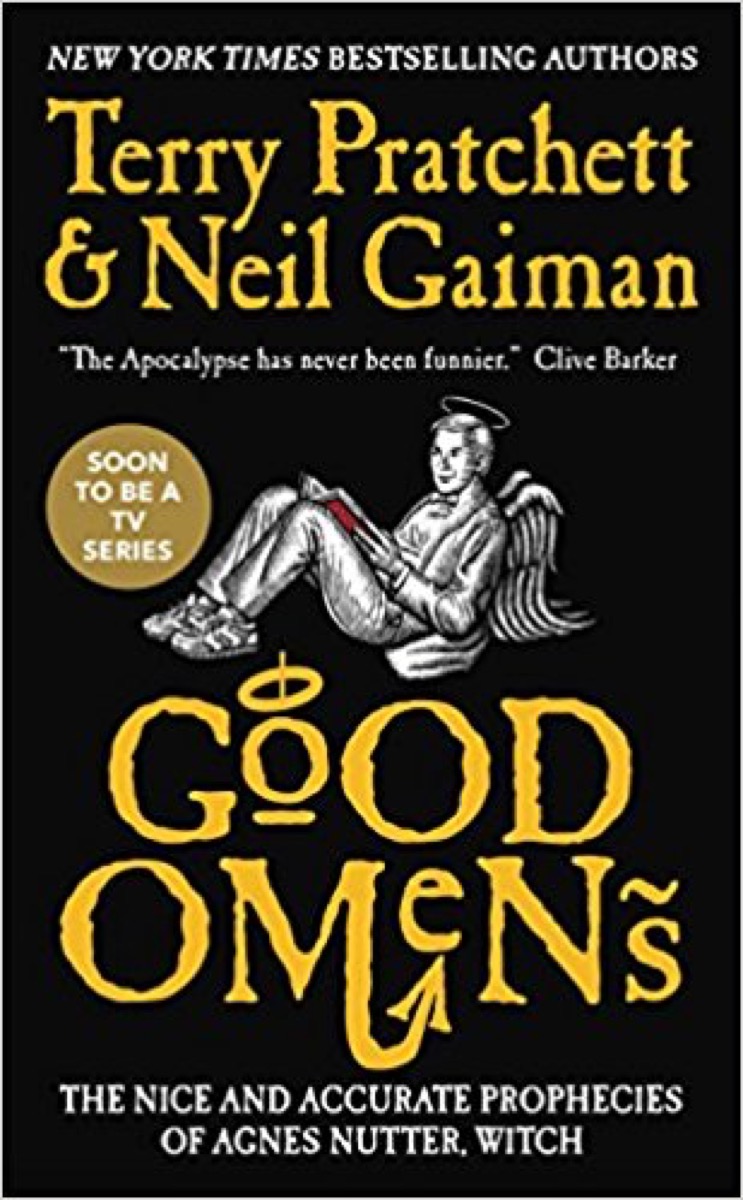
Armageddon has never been this funny. When a prophecy warns that the world will end next Saturday before dinner, an angel and demon, who've been living among mortals and have learned to love the human world, team up to find the Antichrist—a young boy named Adam who ended up with the wrong family after a mixup at the hospital—and see if they can put an end to End Times before it's too late.
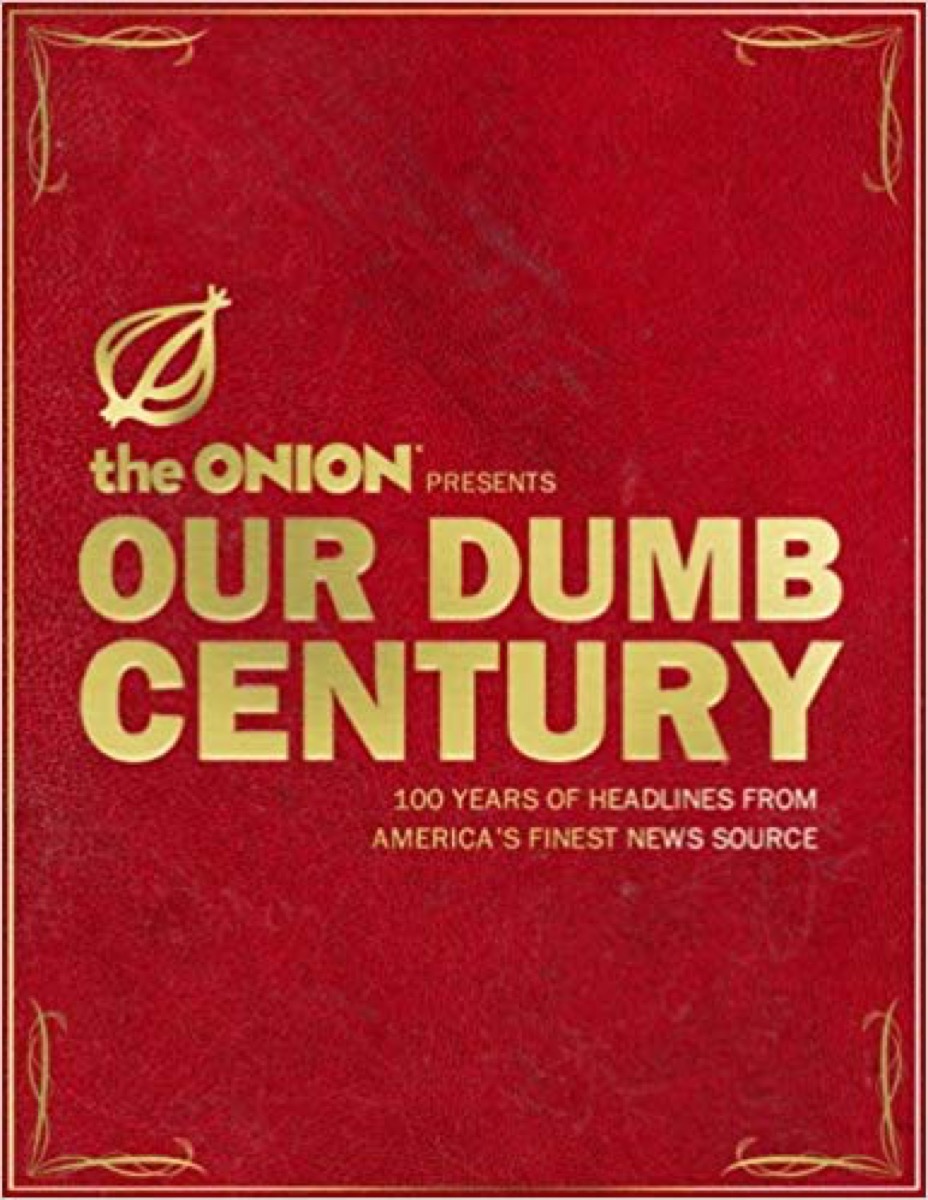
Ah, if only the history books had been this interesting in high school, we would've aced every test. It's never too late to study up on the highlights of the 20th century, even if most of it is reported through a highly satiric lens. You'll learn that the Titanic was really "the world's largest metaphor," and the Nineteenth Amendment meant women are "Finally Allowed to Participate in Meaningless Fiction of Democracy," and that the first words of Neil Armstrong upon walking on the surface of the moon were not nearly as PG as you've been led to believe.

Sedaris has written a lot of books and they're all hilarious in their own way, but this collection of 27 essays will always be our favorite. We love the stories about his father, Lou, who tried and failed to convince his kids to start a jazz combo. We love his attempts at learning the French language—it's the inspiration behind the title—and how he went "from speaking like an evil baby to speaking like a hillbilly." But most of all, we reading about David's brother Paul, otherwise known as "The Rooster," a man who loves cursing and reminding friends and enemies alike, "Nobody kills the … Rooster."
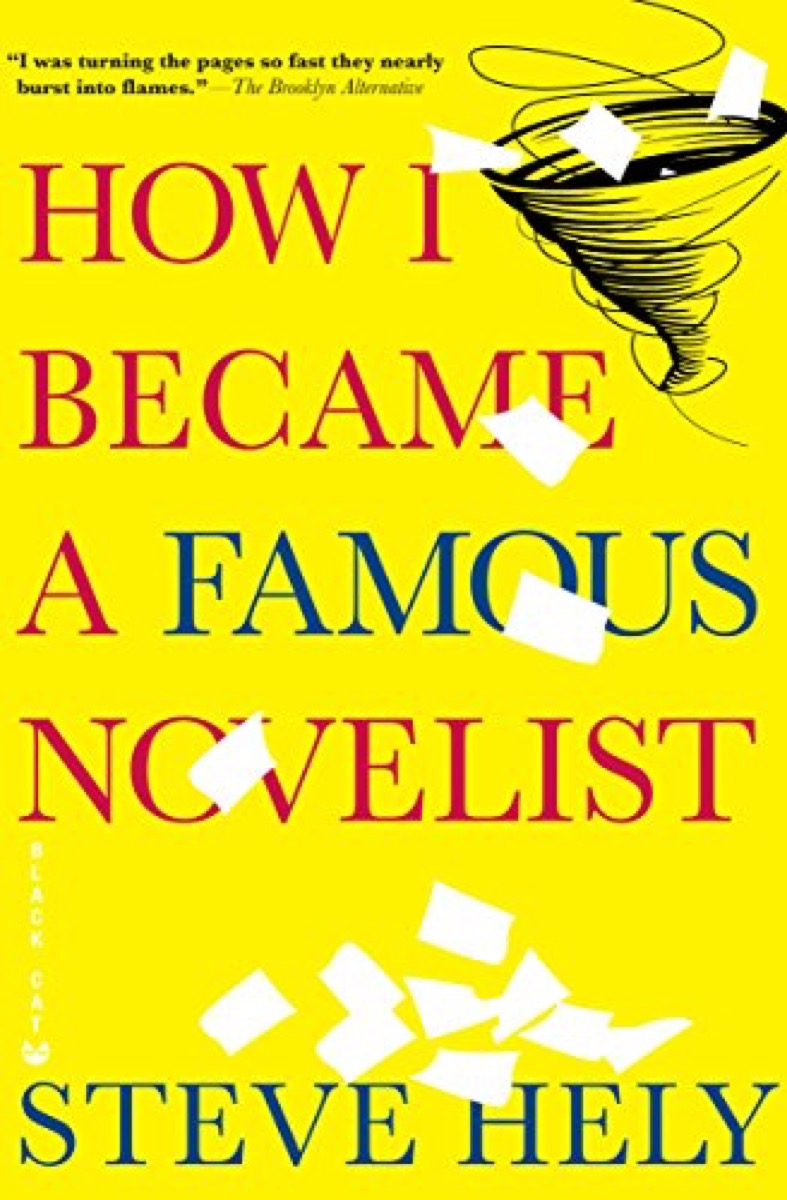
Pete Tarslaw, a guy who earns his living ghostwriting college application essays, decides he wants to become rich and famous by writing a bestselling book—or rather, an "intricate latticework of literary sewage." Why exactly? "If you could write a book and act like you meant it," he says, "the reward was a country estate and supple college girls." Tarslaw is such an unrepentant blowhard, but also so genuinely entertaining, that you're not sure if you want to see him succeed or fall flat on his face.

Payne self-published this novel—the first in a series about a 14-year-old boy obsessed with losing his virginity to the girl of his dreams—and it's filled with the kind of lines every teenage boy wishes rolled quite so effortlessly off their tongue. Nick is like a cross between Ferris Bueller and Holden Caulfield with a sassier mouth.

By the time you read this, another dozen books written by comedians will have been published. And most of them will never come close to being as funny as Tina Fey's debut. Whether she's describing why photoshoots are "THE FUNNEST" or reminding you to ignore the "never let them see you cry" rule ("I say, if you're so mad you could just cry, then cry. It terrifies everyone."), she's both self-effacing and a fierce feminist comedy warrior—not an easy hat trick to pull off.
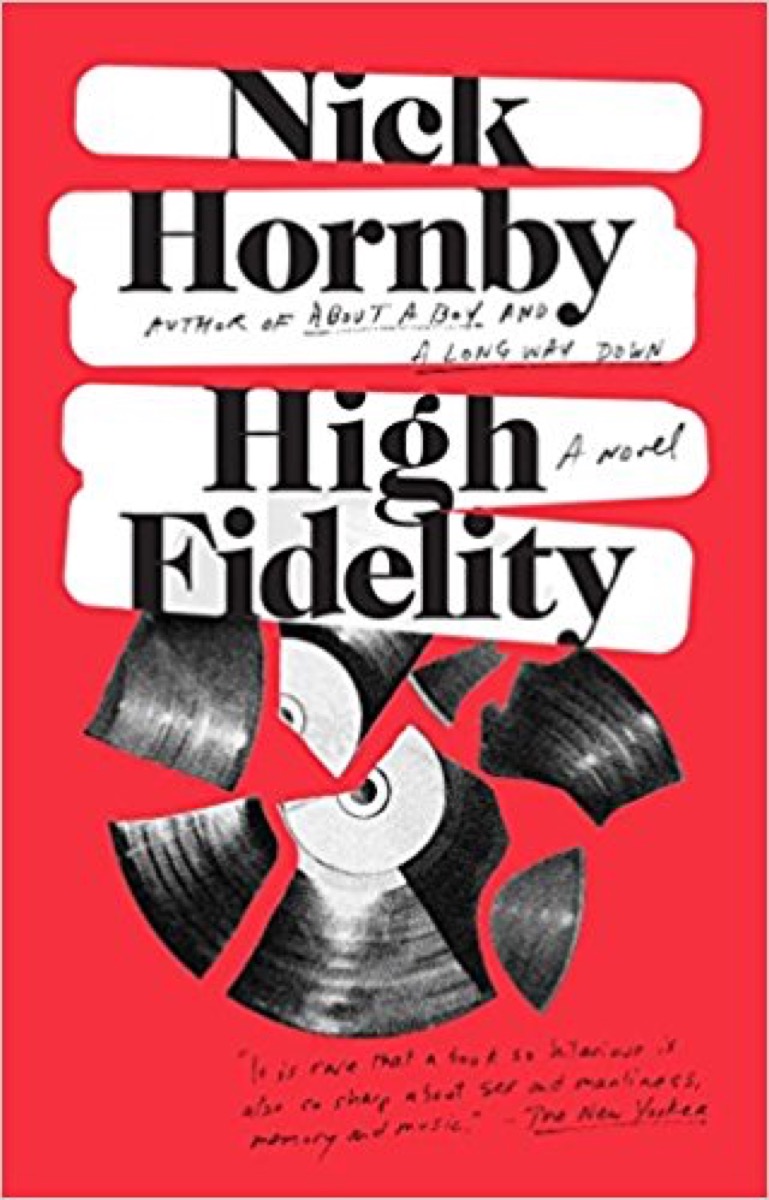
Yes, fine, you've seen the movie version with John Cusack, that's great. But trust us on this, Nick Hornby's novel is 1,000 percent better, delving into the delicious nerd-dom of one man and his obsession with his record collection, and the women he wants to win over with those songs. "What came first—the music or the misery?" Rob, the main character, wonders at one point. "Did I listen to the music because I was miserable? Or was I miserable because I listened to the music?" If you've loved your favorite albums a little too much, every page in this best-selling novel will be filled with hilarious and achingly familiar moments.

Ignatius Reilly, the "dunce" at the center of this Pulitzer Prize-winning masterpiece, is like a study in bad decisions. A 30-year-old scholar with a master's degree and a chip on his shoulder, living with his mother in New Orleans and unable to make anything of his life. He's like the Comic Book Guy on The Simpsons but with more high brow references. "I am at the moment writing a lengthy indictment against our century," Ignatius explains in one chapter. "When my brain begins to reel from my literary labors, I make an occasional cheese dip."

In this collection of essays, the writer best known for penning the screenplays for You've Got Mail and Sleepless in Seattle, explores her own life, and the many pitfalls of growing older. She finds humor in places most writers never think to look, like in the surprisingly touching essay "Moving On," about her love affair with a building in New York. It's a romance doomed to end when her rent jumps by 400 percent. "Just like that, I fell out of love," she writes. "Twelve thousand dollars a month is a lot of cappuccino."
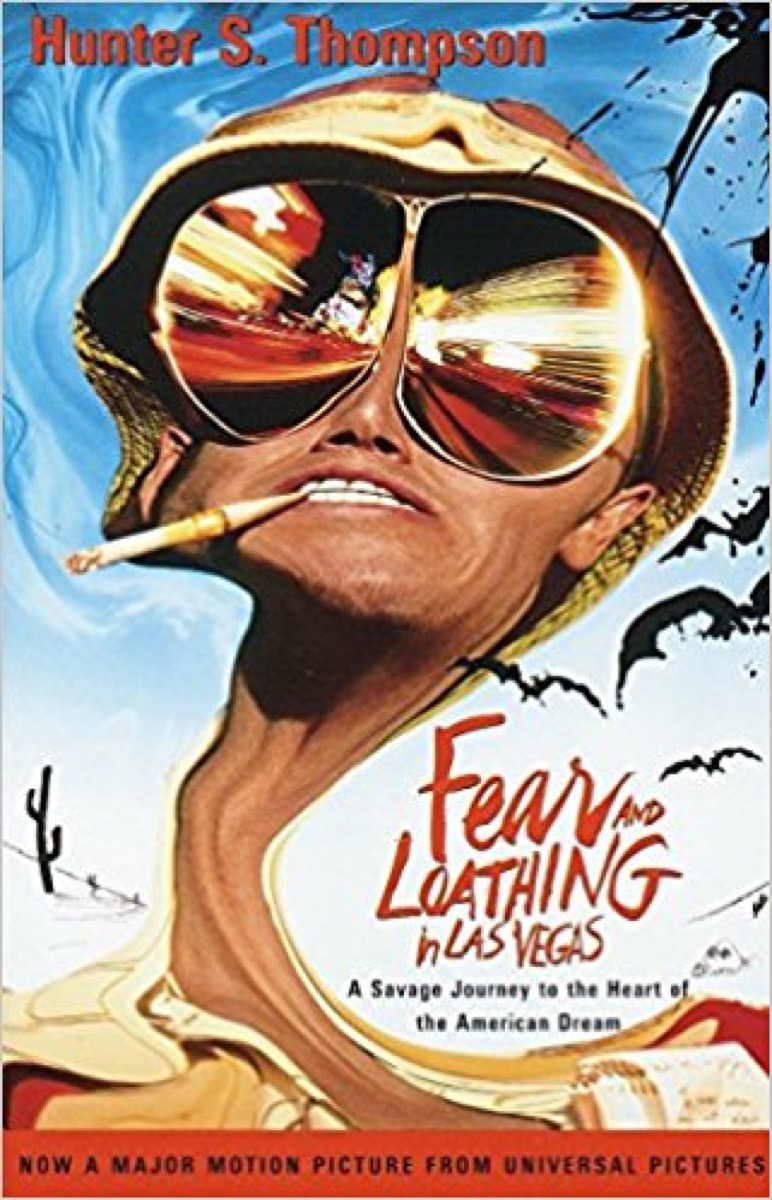
You know you're in for a wild ride when a book begins with, "We were somewhere around Barstow on the edge of the desert when the drugs began to take hold." The late Thompson recounts his misadventures in Las Vegas with his equally debauched lawyer, where they break more laws and consume more illegal substances than should be humanly possible. It's arguable that the entire tale is just a hallucination and none of it really happened as Thompson described it, but with prose this funny and outlandish, we don't really care.
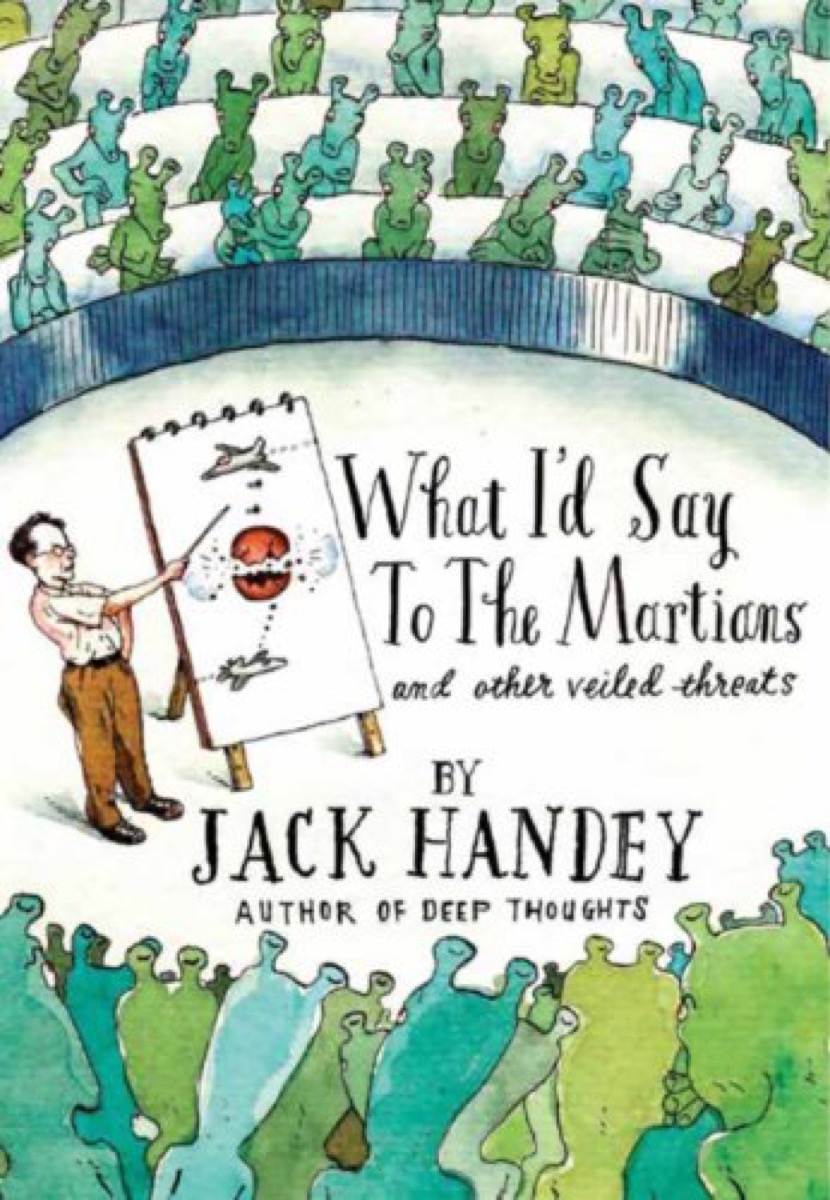
If you were a fan of Handey's "Deep Thoughts" on Saturday Night Live, you've barely scratched the surface of his bizarre wit. The title comes from one of Handey's short essays, originally published in the New Yorker, a ridiculous monologue by a human prisoner to his alien captors. "If I could get loose from this cage you have me in," he declares, "I would tear you guys a new Martian (expletive)!" That gives you a pretty good idea of the comedic tone of this rip-roaring collection.

The humor website McSweeney's Internet Tendency, created by bestselling author Dave Eggers, collects some of their most hilarious literary spoofs, sending up everything from "Lolita" (To Catch a Predator: Humbert Humbert) to "Rip Van Winkle" (in a story called "Alternate Endings To Famous Literary Works As Written By A Fifteen-Year Old With A Grudge," the sleeping colonial gets profanity written on his forehead).

Is there any advice more poignant, more needed, in 2018 than this: "Don't Panic." You'll get timeless wisdom like this and much more in this sci-fi comedy classic, which follows two humans who barely escape the Earth's destruction—demolished to make way for a galactic freeway—and set out to discover the meaning of life, or at least a decent cup of tea, which may be the same thing.
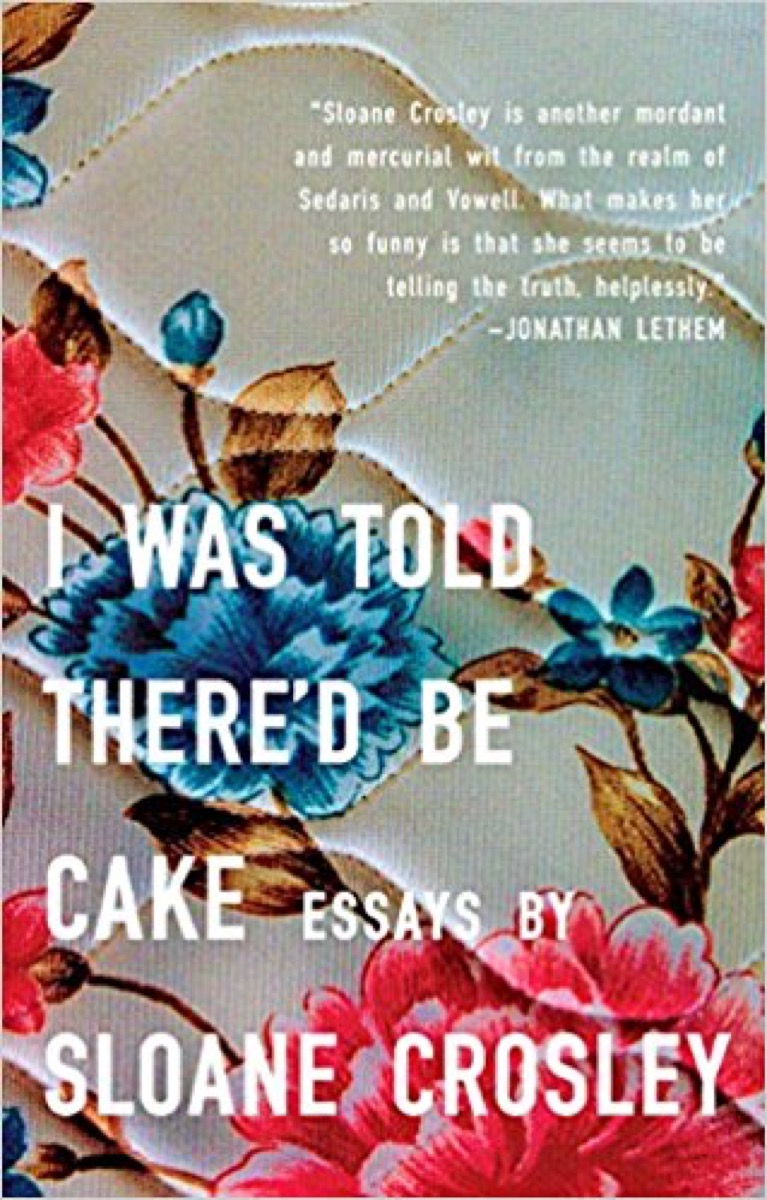
"As most New Yorkers have done," this collection of stories begins, "I have given serious and generous thought to the state of my apartment should I get killed during the day." Crosley's tales of urban living are as funny as her book's title, documenting everything from her weird obsession with plastic ponies to trying to determine which party guest left an unwelcome "surprise" on her bathroom floor.
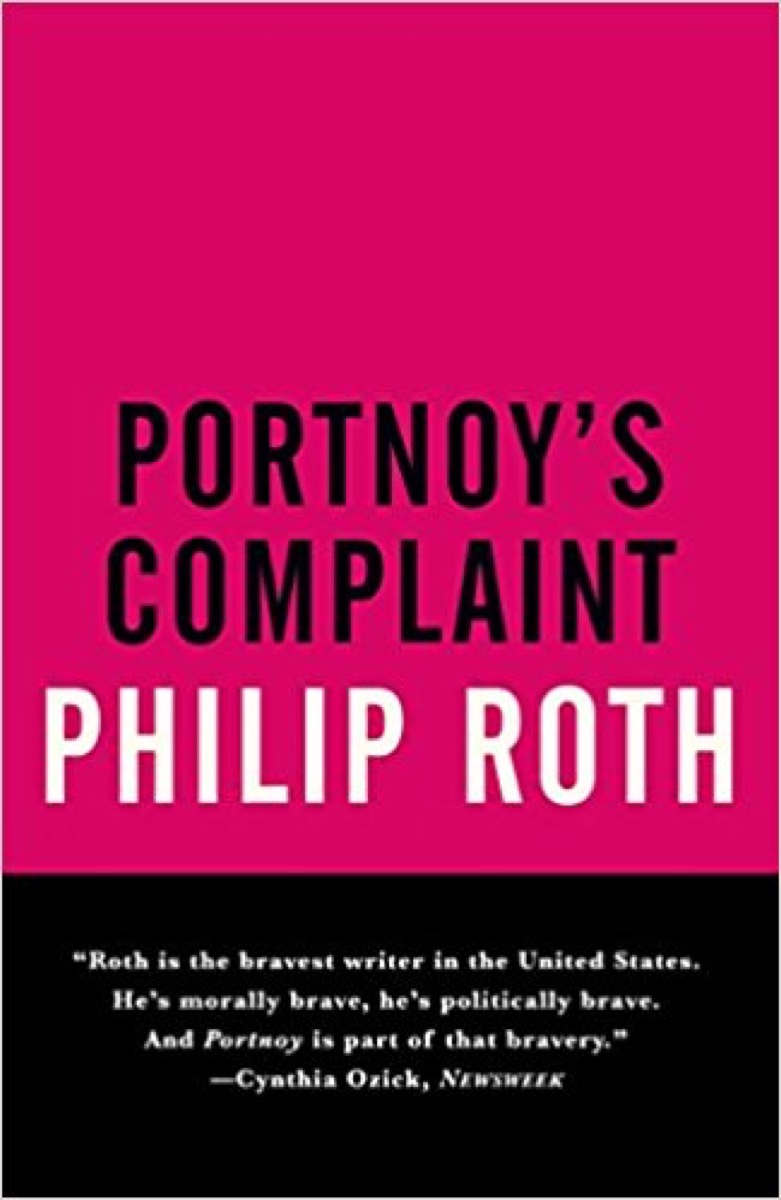
When the novel came out in 1969, the New Yorker called it "one of the dirtiest books ever published." That may still be true in 2018. It's basically a long monologue by Alexander Portnoy, a "lust-ridden, mother addicted young Jewish bachelor," to his therapist, recounting his shocking and hilarious sexual escapades, including some pretty crazy behavior as a teenager. We won't spoil too much for you, but let's just say you'll never want to eat liver again if there's a teenage boy in the house.

You probably wouldn't expect a performance artist and filmmaker like July—her indie film debut, Me and You and Everyone We Know, was an arthouse hit—to be able to write short stories that are anything but, well, weird. But the characters in this collection, while definitely odd, are also immensely funny and relatable. They're lonely, isolated souls looking for something to give their life meaning. That may not sound especially giggle-worthy, but July mines their pathos for hilarity. In one story, a pair of teens fantasize about being orphans. "We felt deserving of the pity that orphans get," July writes. "But embarrassingly enough, we had parents. I even had two."
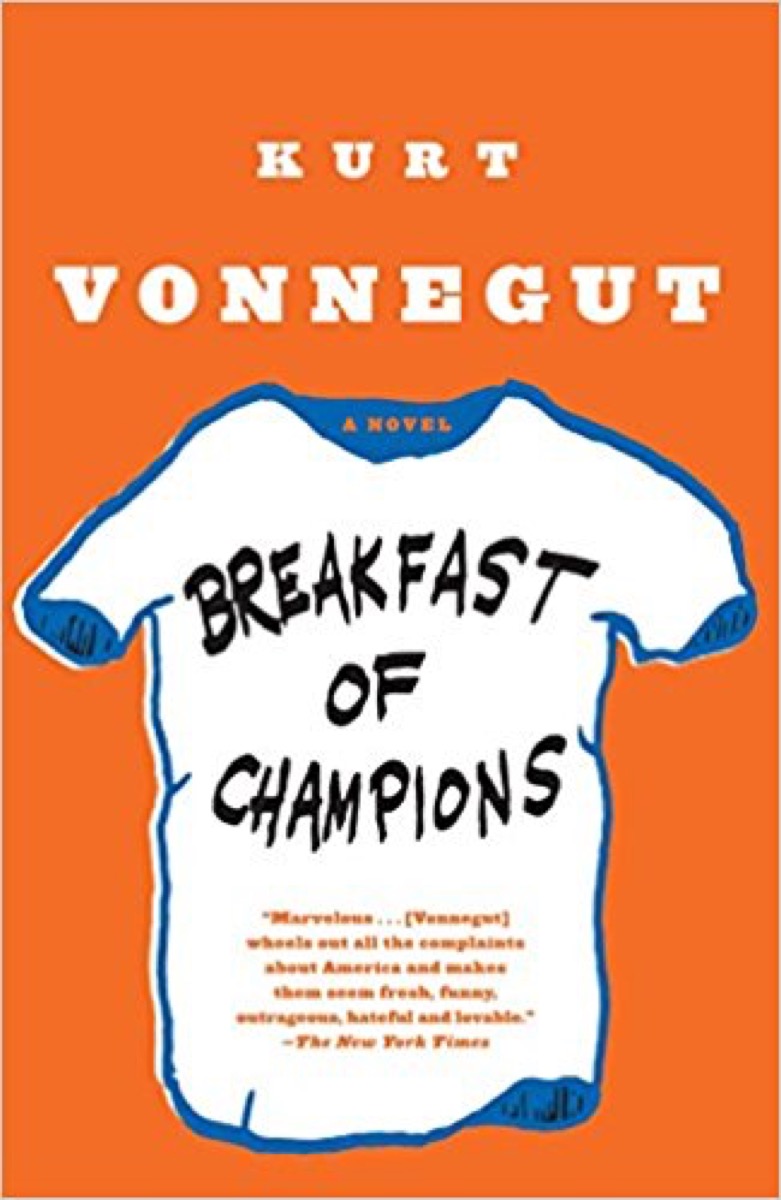
One of Vonnegut's most beloved novels, written as a 50th-birthday present to himself, is also his most uproarious. Few authors can make depression and futility as entertaining as Vonnegut, who peppers his narrative—about the fateful meeting between an obscure science fiction author and a car dealer who's going slowly insane—with crude drawings of animals, pyramids, underwear, tombstones, and, well… let's just say an intimate, rarely seen part of the author's body.
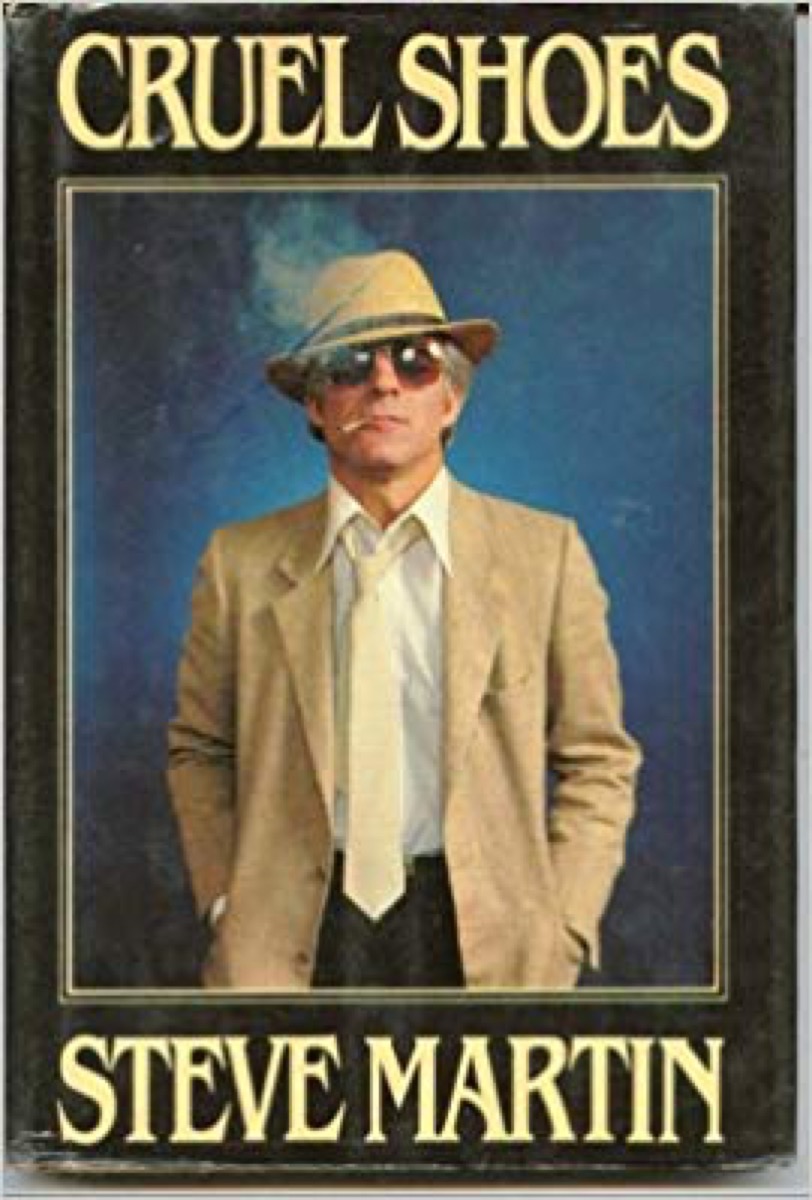
If you're already a fan of Martin, particularly his surreal stand-up from the '70s, this collection of short stories, most of which are no longer than a page, will be like reuniting with an old friend. We have a hard time picking just one favorite—stories like "Poodles…Great Eating" and "How To Fold Soup" stand out—but we have a particular fondness for the title story, about a "hideous pair of black and white pumps" seemingly designed to torture feet with impossible angles and razor blades. Spoiler alert: the story has a happy ending.
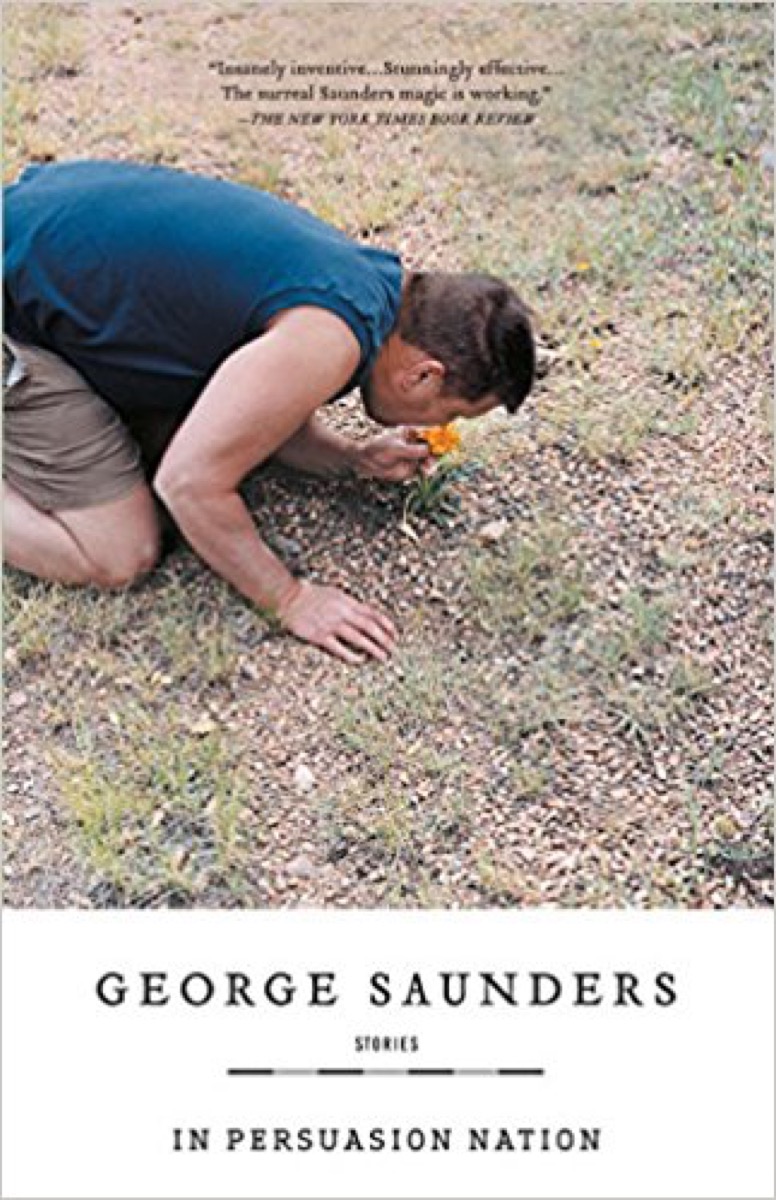
Imagine George Orwell with a twisted sense of humor and you have a pretty good sense of what to expect from a George Saunders short story. Whether it's parents attaching computerized masks to their babies to make them more attractive and verbal, or orphans sold off to a market research firm where they become "Tastemakers & Trendsetters," Saunders deftly satirized our consumer culture and media-saturated life.
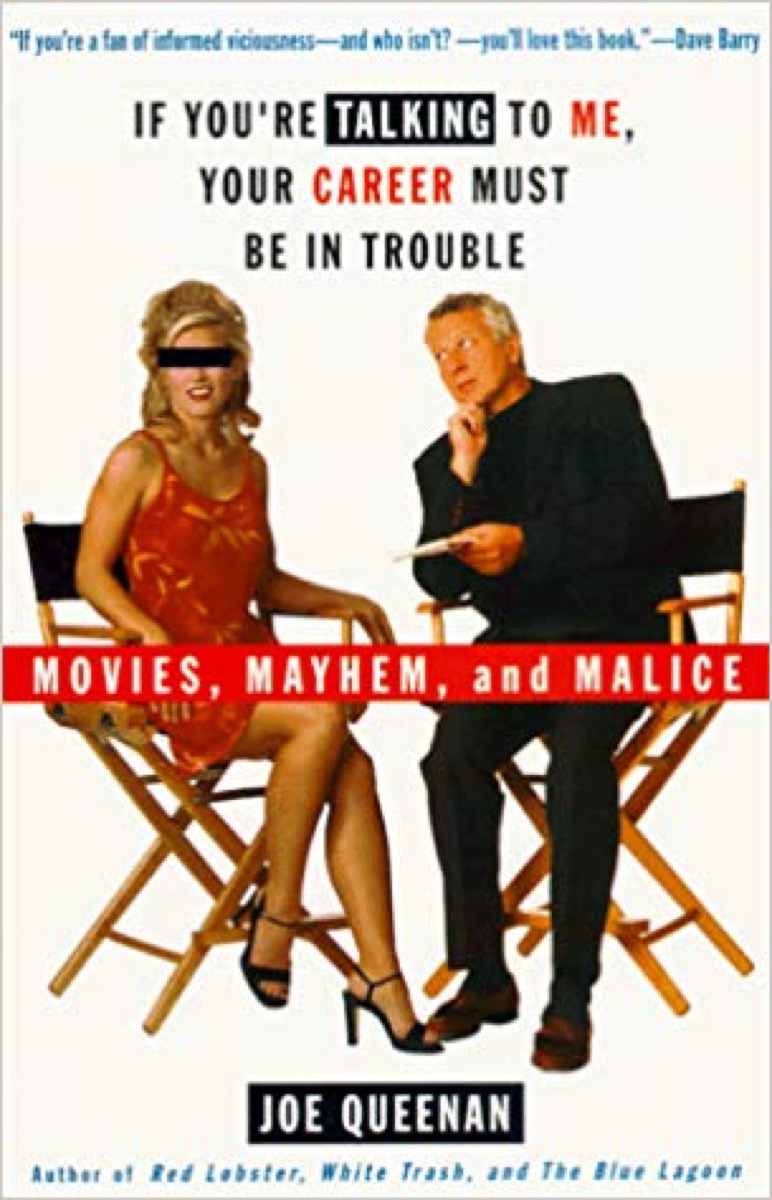
If you're not already familiar with Queenan's pitch-perfect wit, which often takes aim at Hollywood, this is the place to start. As he describes his job in the opening pages, "I make my living by watching unspeakably foul, hopelessly incomprehensible movies, and then issuing belated, useless warnings to the viewing public."
In addition to takedowns of Woody Allen and Barbra Streisand, Queenan attempts to live like Mickey Rourke for a day, which involves not bathing, smoking an insane amount of cigarettes, swearing constantly, and repeating the ridiculous quotes that Rourke has said in movies and interviews, like randomly telling people, "Sometimes you've just got to roll the potato."

Jacobs, a man who describes himself as "Jewish in the way the Olive Garden is an Italian restaurant," gives himself the unique challenge of spending an entire 12 months living according to the Bible's teachings as literally as possible. Not all of the 700 biblical rules are as easy as growing a beard and not coveting your neighbor's wife. He also has to stone adulterers. "I figured my loophole would be this: the bible doesn't specify the size of the stones," Jacobs writes. "So… pebbles."
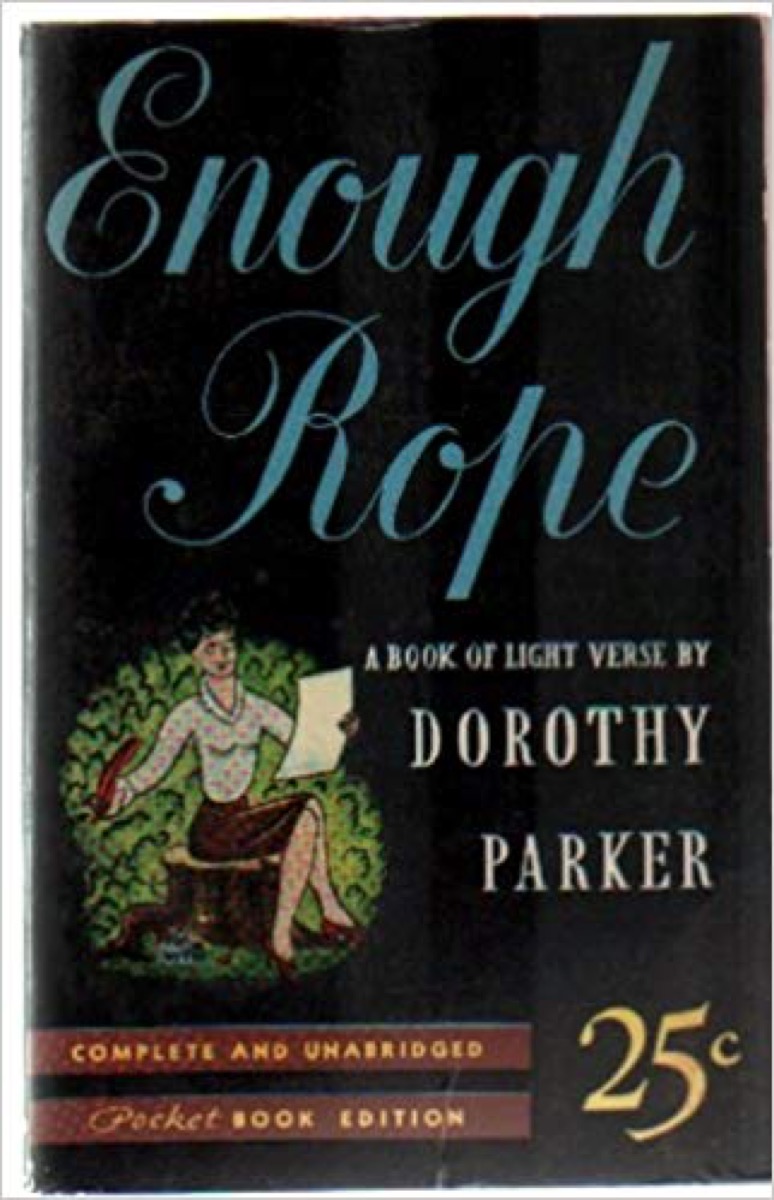
If you question why we'd include a book of poems on this list, even one written by a founding member of the Algonquin Round Table, we present to you as evidence this single poem, excerpted from Parker's collection:
"If I didn't care for fun and such,
I'd probably amount to much.
But I shall stay the way I am,
Because I do not give a damn."
Need we say more?
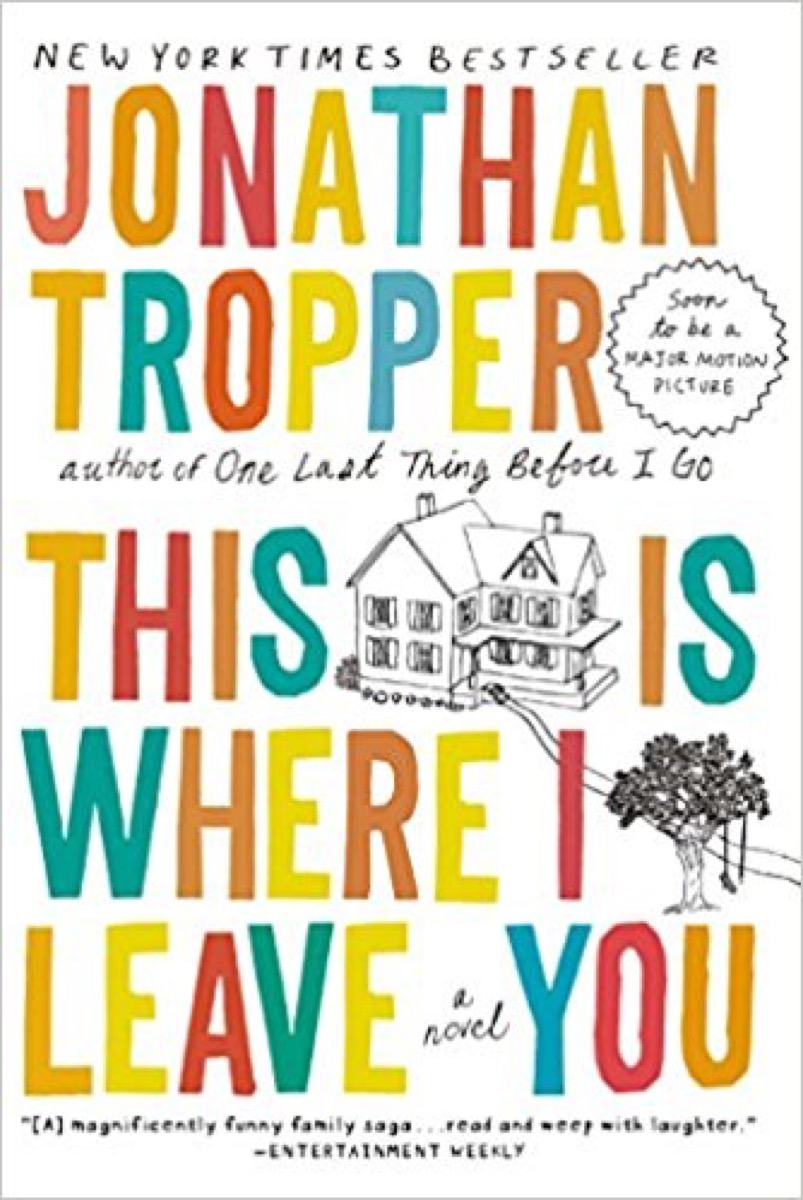
Sex, death, and family are all fodder for comedy, and this novel combines all three seamlessly in ways that will have you wondering whether to laugh or weep. Judd Foxman, fresh off of an ugly divorce (his wife cheated on him with his boss), returns home after the death of his father to sit shiva for a week with his three adult siblings and a pop-psychologist mom. The family's relationship with each other is complicated and hilarious. As Tropper observes about one of the brothers, the black sheep of the family, he's "the Paul McCartney of our family: better-looking than the rest of us, always facing a different direction in pictures, and occasionally rumored to be dead."
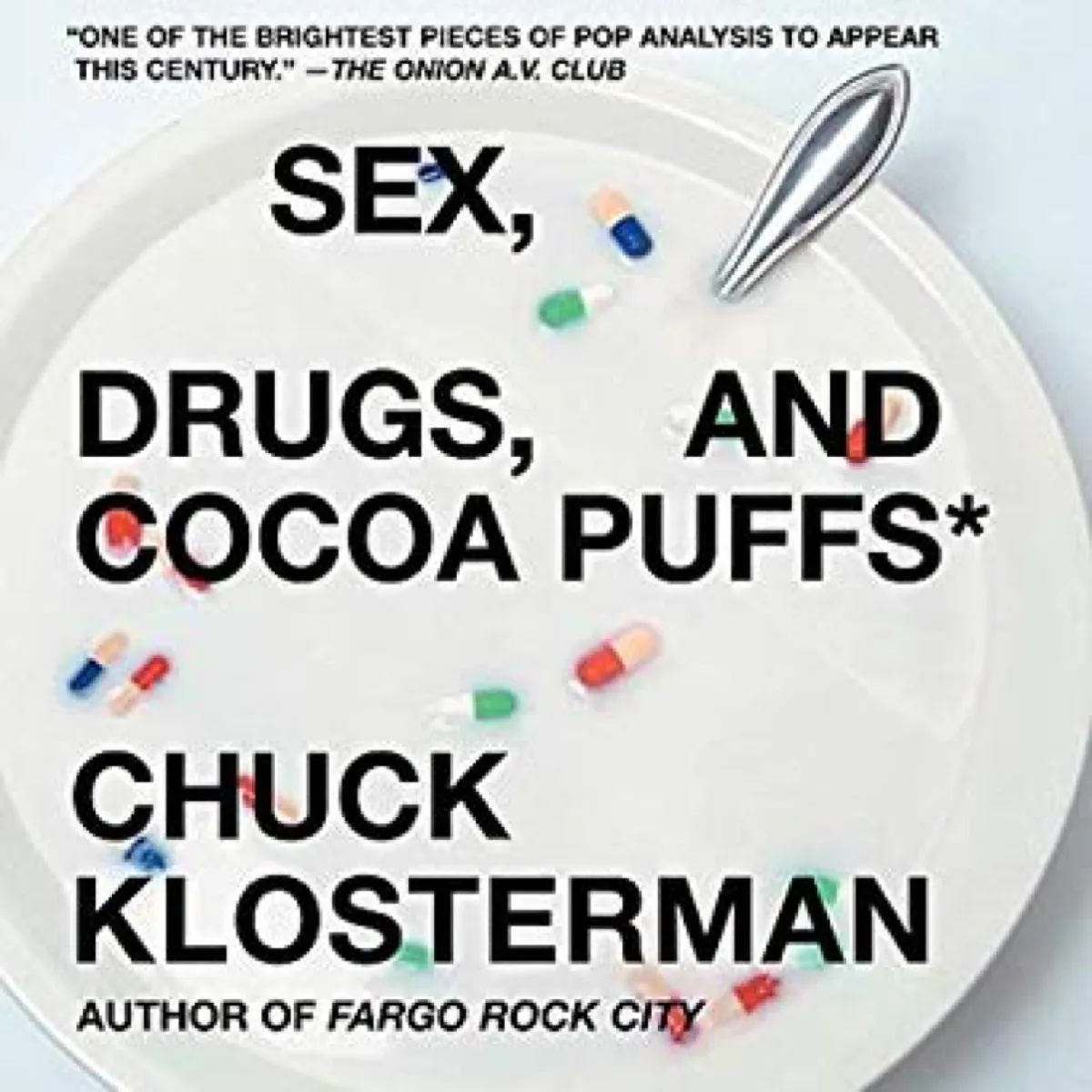
Subtitled "A Low Culture Manifesto," Klosterman's essay collection reads like the profound-yet-silly ramblings of a stoned philosopher who's watched too much reality TV, and we mean that as a compliment.
The book became a cult hit by taking low culture seriously, whether it's Star Wars, computer games, Baywatch, or MTV, and just might change the way you think about the media you consume every day. "The main problem with mass media," Klosterman writes, "is that it makes it impossible to fall in love with any acumen of normalcy. You can't compare your relationship with the playful couple who lives next door, because they're probably modeling themselves after Chandler Bing and Monica Geller."
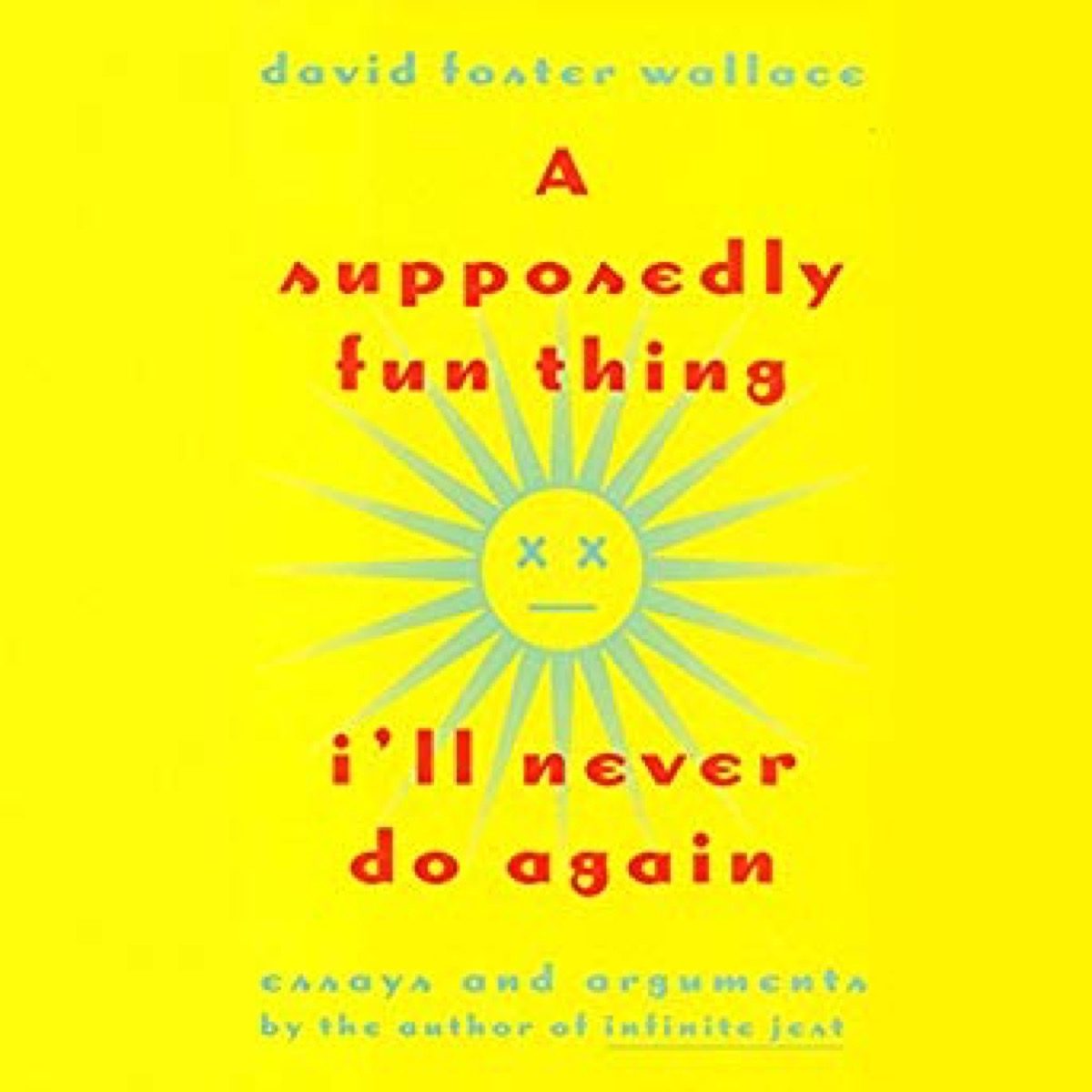
The late author may be most remembered for his magnum opus, Infinite Jest, but this collection of essays really highlights his talent as literature's funniest pop culture critic. The best stories are when he ventures into the dark underbelly of Middle American tourism, visiting the Illinois State Fair or taking a seven-day luxury cruise to the Caribbean. "I have now seen sucrose beaches and water a very bright blue," he writes. "I have seen an all-red leisure suit with flared lapels. I have smelled suntan lotion spread over 2,100 pounds of hot flesh."
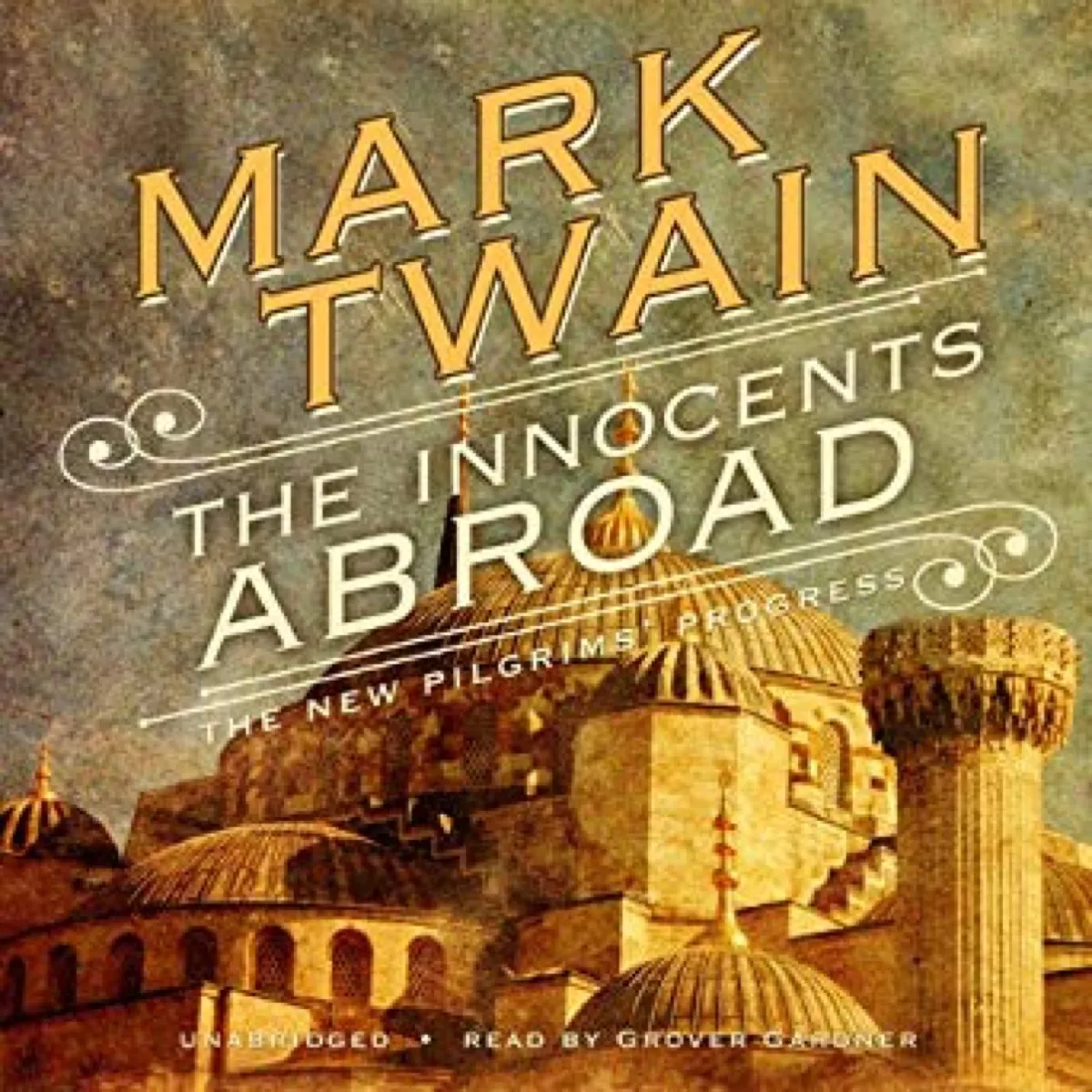
A travelogue of the Tom Sawyer author's tour of Europe and the Holy Land with a group of Americans, as part of the so-called "Great Pleasure Excursion." Twain has a take-no-prisoners wit, and be forewarned, there is much here to offend politically correct sensibilities. But despite his outdated opinions of the Arab world, he perfectly nails the obnoxiousness of the typical American tourist. As Twain writes, "The gentle reader will never, never know what a consummate ass he can become until he goes abroad."
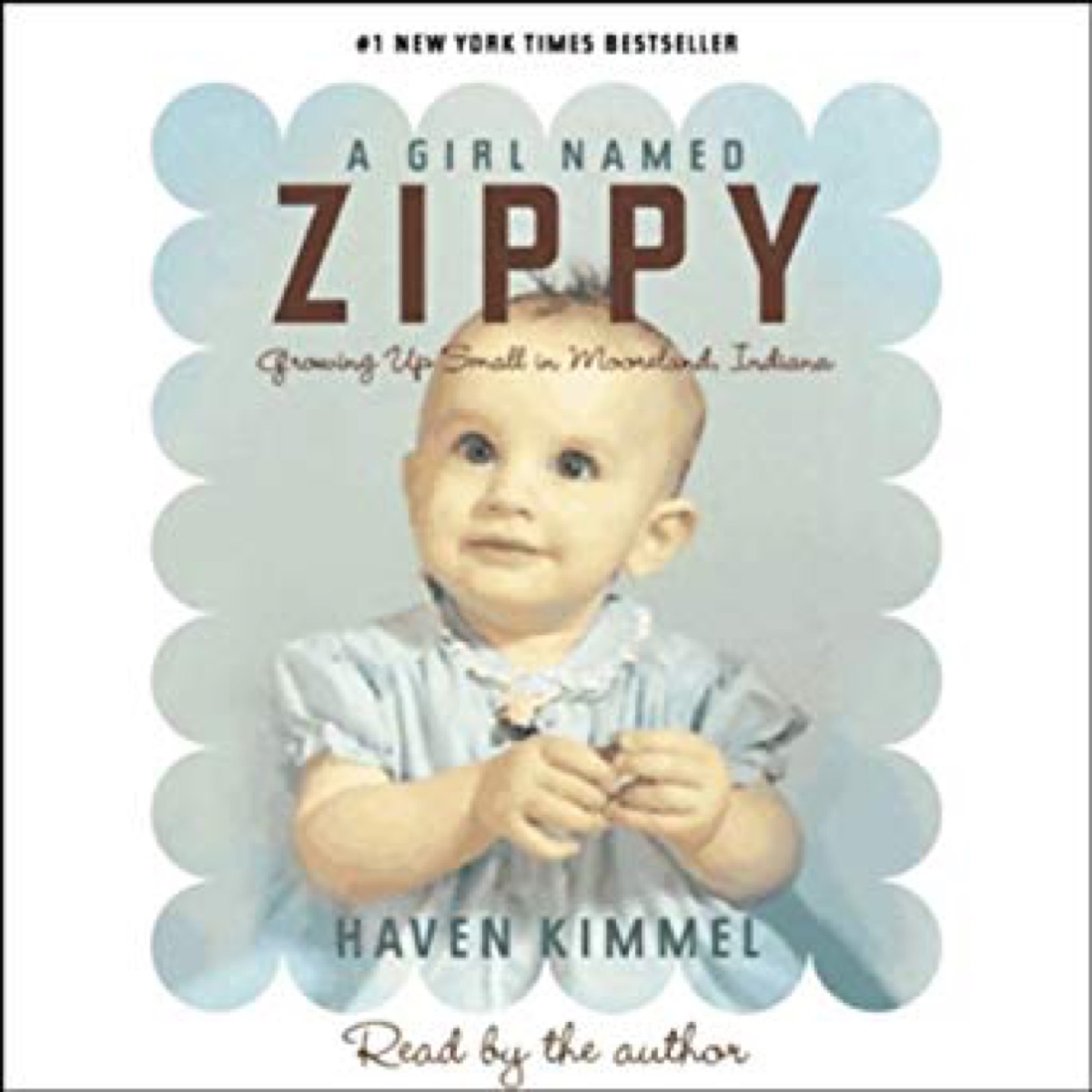
A memoir of growing up in a small Indiana town, where the population was always been exactly 300 due to some "mysterious and powerful mathematical principle," this is a tale that will be familiar to anyone who remembers the simple pleasures of childhood, from climbing trees ("There are a finite number of times one can safely climb the same tree in a single day") to sports ("In order to be a good athlete one must care intensely what is happening with a ball, even if one doesn't have possession of it. This was ultimately my failure: my inability to work up a passion for the location of balls.")
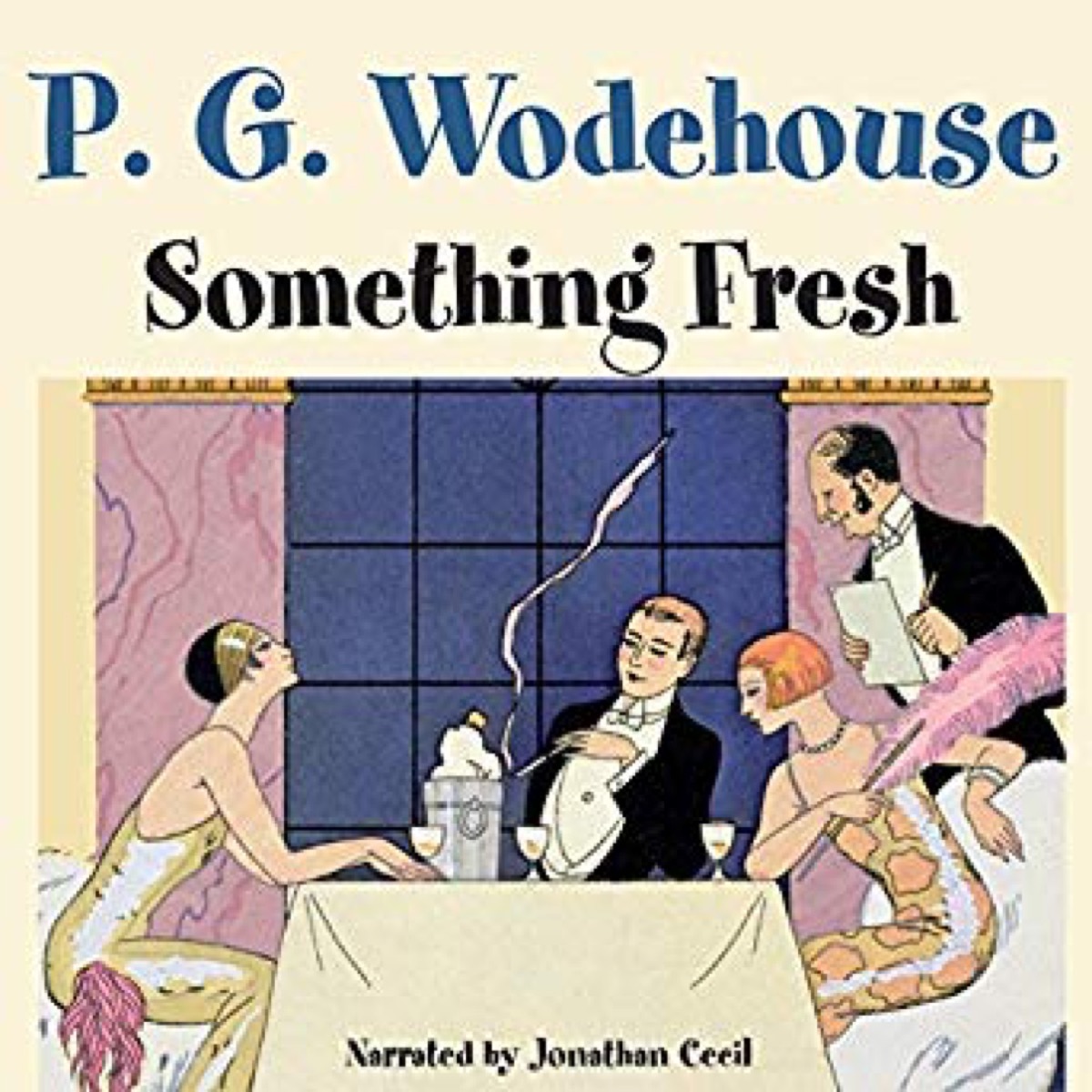
Set in Blandings Castle, home to the Emsworth family, this comic novel, the first in a series about the castle's inhabitants, is full of intrigue and romance, imposters and missing Egyptian gems, and some if the best comedic writing about the British aristocracy ever published. Here's a sampling of one of our favorite lines: "One of the King Georges of England—I forget which—once said that a certain number of hours' sleep each night—I cannot recall at the moment how many—made a man something, which for the time being has slipped my memory."
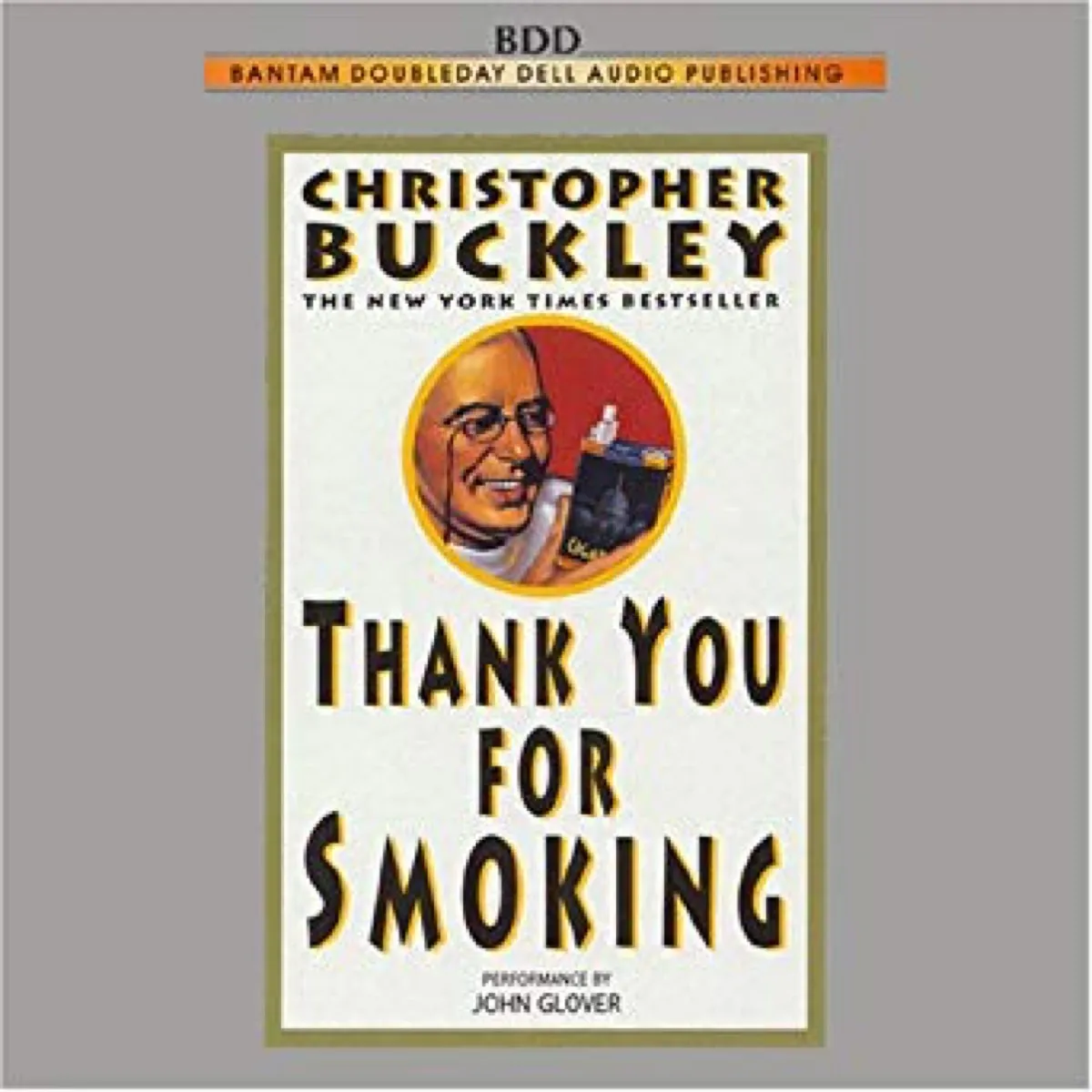
"Nick Naylor had been called most things since becoming chief spokesman for the Academy of Tobacco Studies, but until now no one had actually compared him to Satan." The opening line of Buckley's novel pretty much tells you what to expect from his scathing tale of a tobacco propagandist, who is determined to keep his industry alive at all costs, no matter how many customers it kills. Even getting kidnapped by anti-tobacco militants, who try to kill him by covering his body with nicotine patches, isn't enough to make his lose faith in the profitable but deadly plant.

An Indian-American mother in suburban Cleveland, trying to find meaning in her life after her son goes to college, takes a job as a receptionist in an Indian proctologist's office, and moonlights writing erotic supernatural fiction. Equal parts poignant and funny, it's really a universal tale of immigrants trying to find their place in American society, and the balancing act of keeping a foot in both identities.
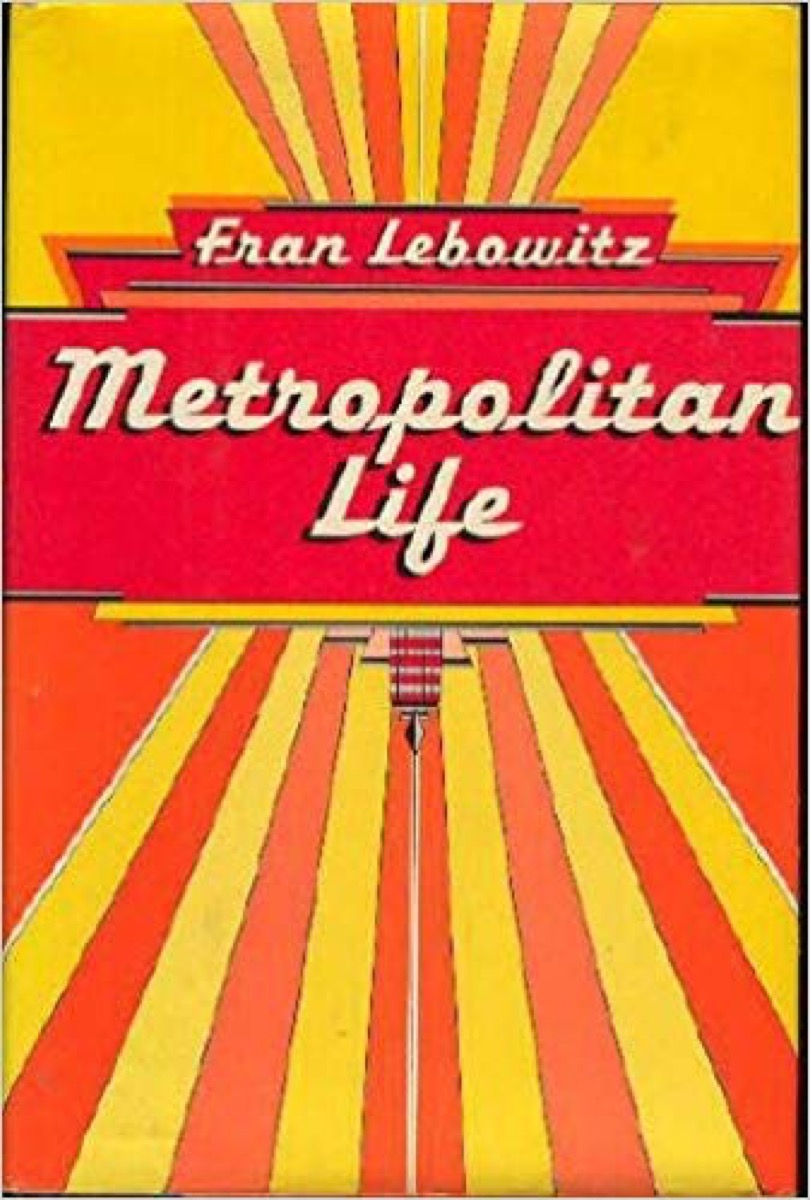
Other than cigarettes, furniture, and sleep ("death without the responsibility"), there's not much that Lebowitz actually cares for, which is what makes this book such a delight. Reading it is like sharing a late night cocktail with a droll, caustic curmudgeon, as she rails against children ("All God's children are not beautiful. Most of God's children are, in fact, barely presentable") and t-shirts with messages ("If people don't want to listen to you, what makes you think they want to hear from your sweater?")
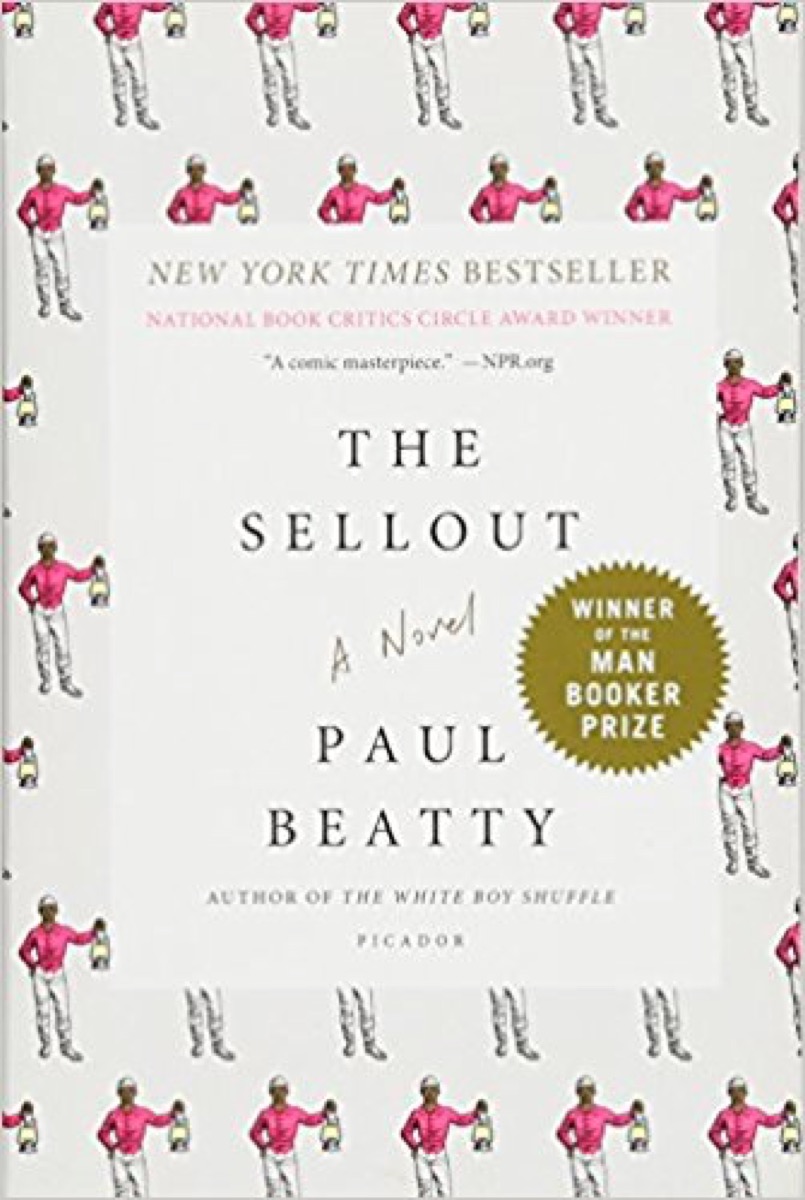
A satirical novel about race that was the first book by an American author to win the prestigious Man Booker Prize, one of the biggest literary awards in the world. Even though it takes on a topic that doesn't feel especially ripe for comedy—there isn't much funny about racism and slavery—it makes every ridiculous premise and guffaw feel important. The premise involves a black man in suburban Los Angeles who tries to save his dying town by reintroducing slavery and segregation, which lands him in front of the Supreme Court. "That's the problem with history," the unnamed main character observes. "We like to think it's a book—that we can turn the page and move … on."
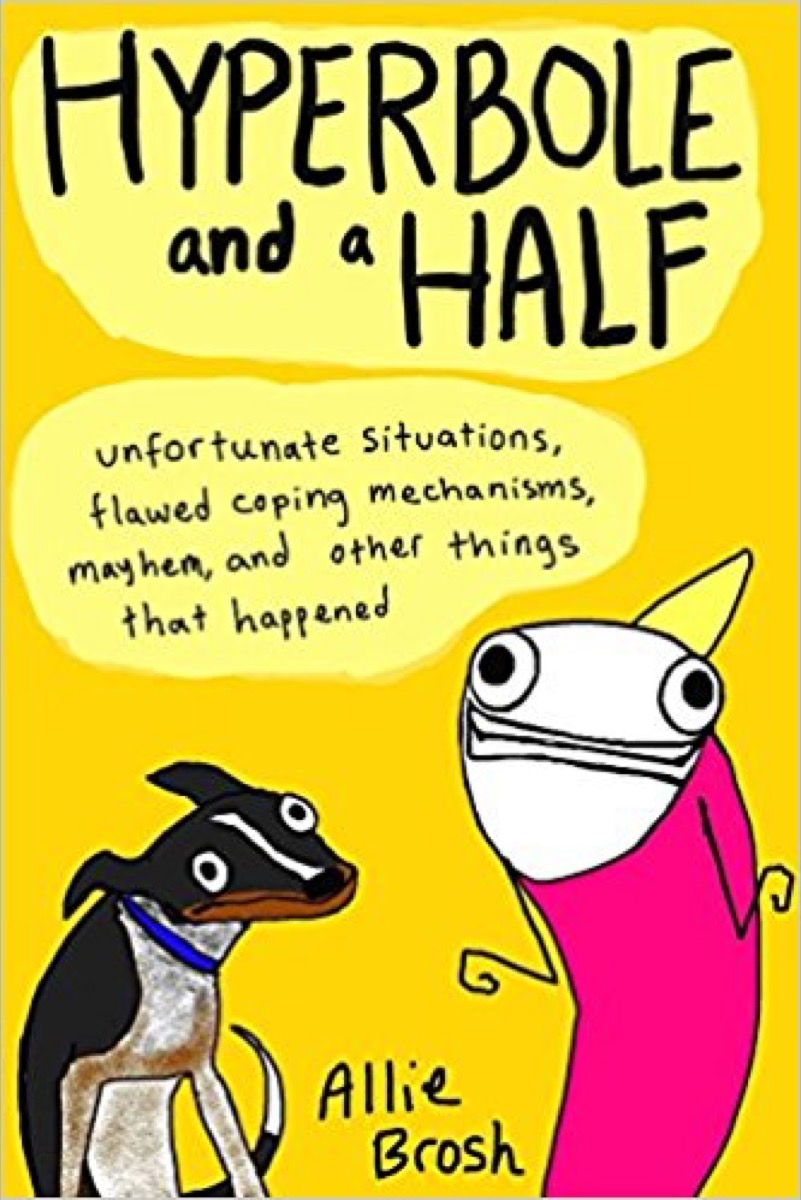
It began as a blog where writer Allie Brosh created bizarre Microsoft Paint illustrations about dogs, cake, and her battles with depression. She soon developed a cult following and had her best work featured in this brilliant collection, which even Bill Gates—yes, the billionaire Microsoft co-founder—praised as "funny and smart. I must have interrupted (my wife) Melinda a dozen times to read to her passages that made me laugh out loud."
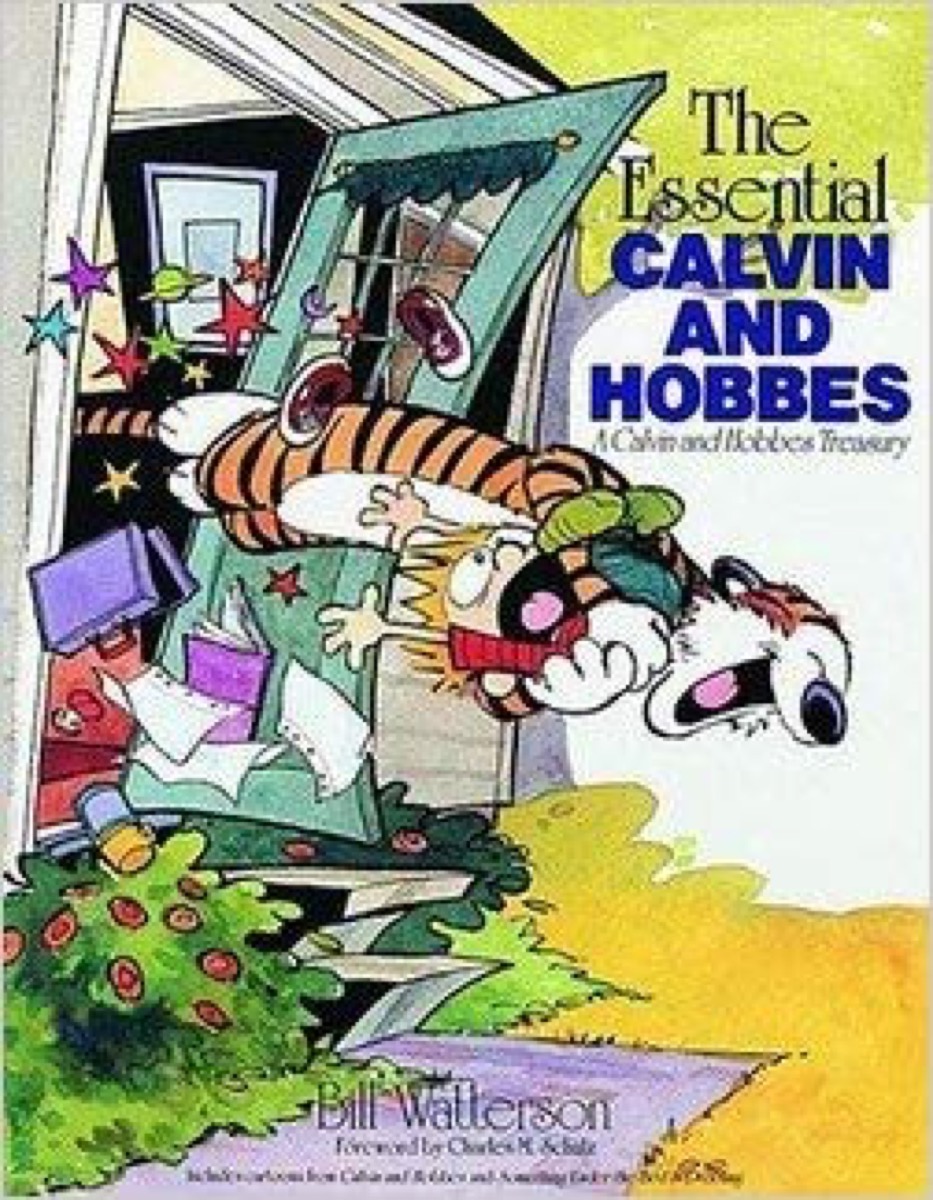
It's so much more than just a newspaper comic strip about a precocious kid and his best friend, a tiger doll that only talks in his imagination. It's a portrait of everything magical and mischievous about childhood. As Calvin ponders the Big Questions, like "There's never enough time to do all the nothing you want," his fantasy life took him to universes beyond his reach, where dinosaurs and spacemen coexist and engage in epic battles.
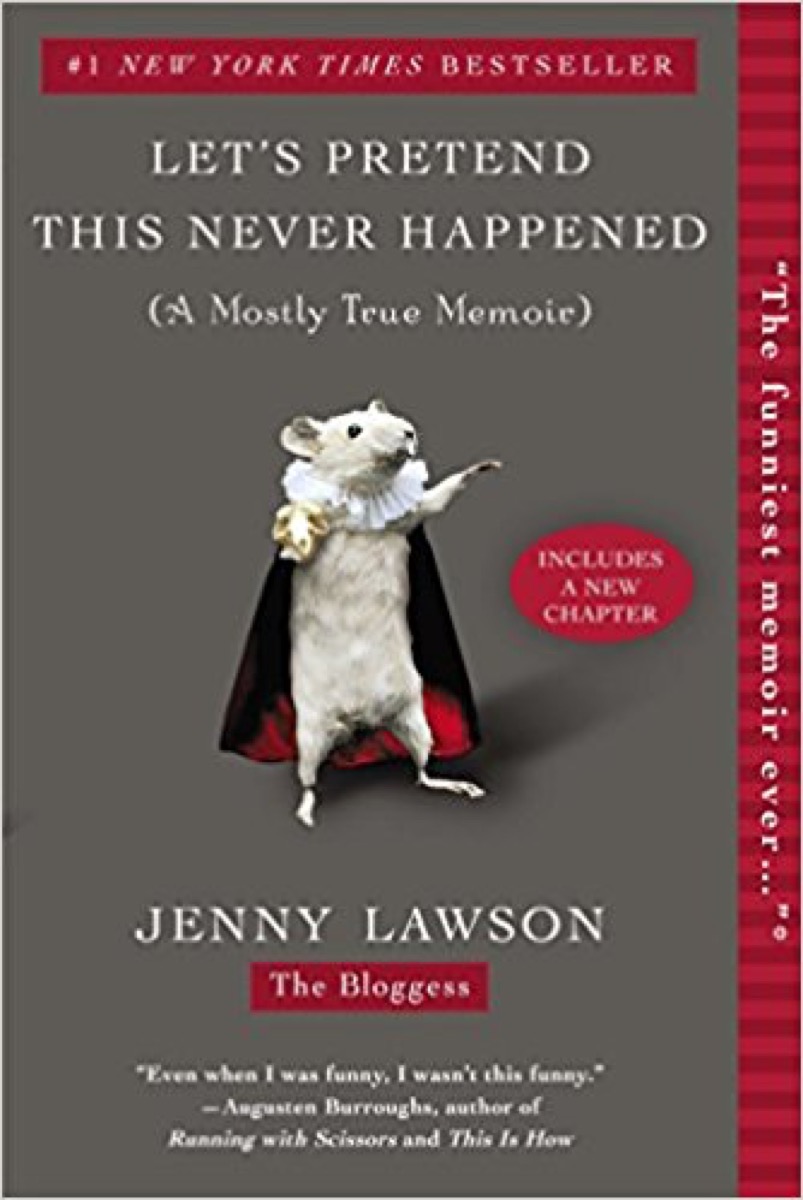
Let's be honest, the best memoirs let us revel in the schadenfreude of somebody's spectacularly rotten childhood. That's exactly what you'll get here, as Lawson, who has built an online following as The Bloggess, overshares about her cringe-worthy family, which includes a taxidermist dad, a school cafeteria mom, and a sister who's been elected to play the high school mascot and now walks around constantly dressed like a giant bird named Wally.
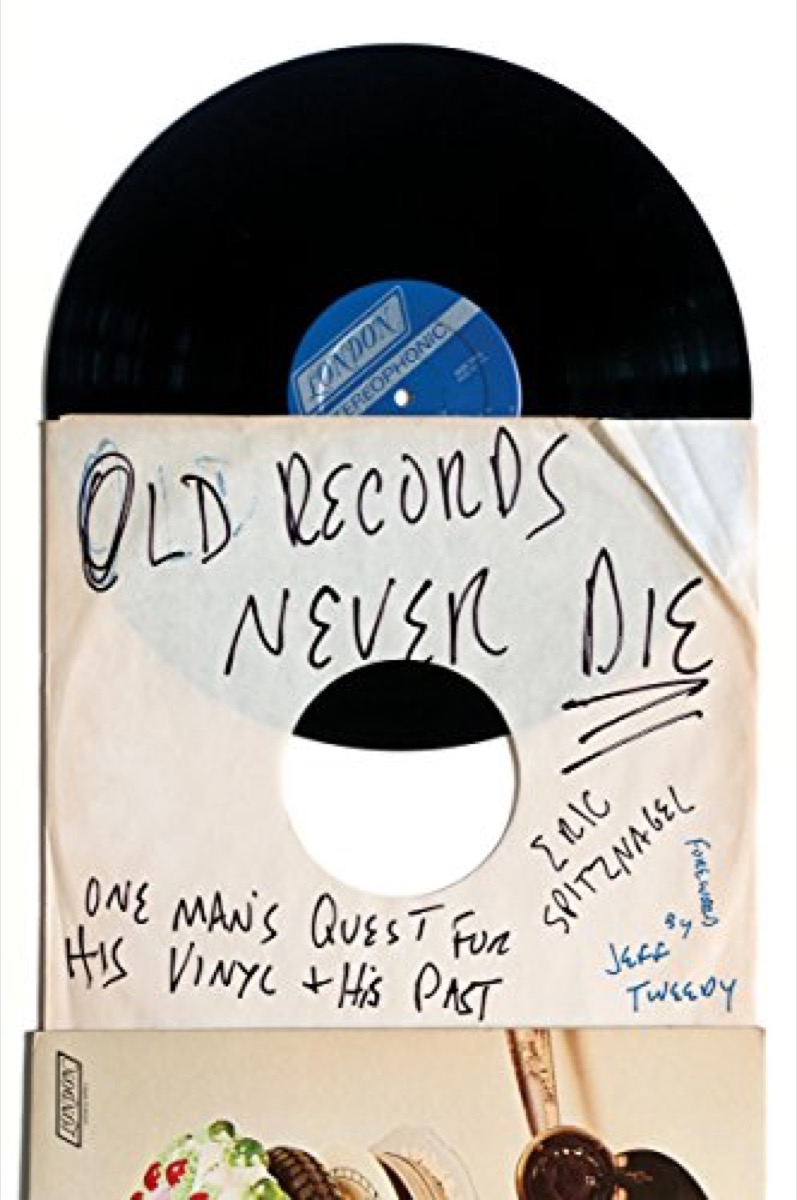
A middle-aged writer regrets selling off his record collection in the '90s, and sets off on a harebrained adventure to track down his old vinyl—not duplicates, but the exact records he once owned, including a Bon Jovi record with his first girlfriend's phone number written on the sleeve. FrequentBest Life contributor Eric Spitznagel takes us on a journey through musty basements and old haunts, culminating in a reunion with old friends on his empty childhood home, where they spin records and revisit their childhoods by eating a 40-year-old box of moldy Boo Berry.
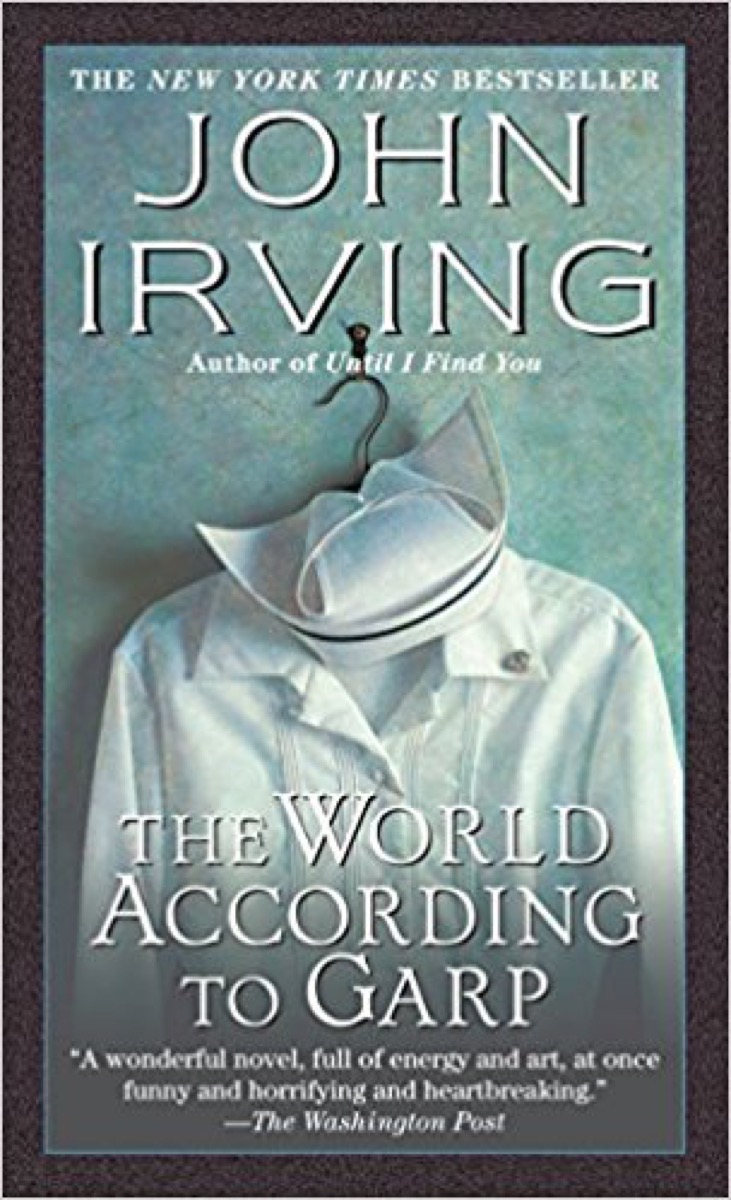
As a kid, John Irving never knew his biological father, and he once told his mother that if she refused to tell him anything, he would just make up his dad's story. She purportedly told him, "Go ahead, dear," and the result was this groundbreaking novel, about a man named T.S. Garp born to a feminist icon and a soldier who died before Garp was conceived (it's a long story), searching for his identity in a world where he feels like an outsider. He encounters a motley crew of misfits, like a transsexual ex-football player and a dog with a taste for earlobes (who needs to be careful of his own ears).

If you skipped reading this one in English class, you missed out on something special. Written in 1895 by the master of farce, Oscar Wilde, it's a satire of Victorian social hypocrisy that maybe didn't create but at least perfected such timeless tropes of comedy like mistaken identities, bizarre coincidences, and lots of slamming doors. The trouble starts with the invention of a fictional "brother" and wild child named Ernest, whose nonexistent city shenanigans give country gentleman John Worthing a chance to sow his oats in London. But things get more complicated when John learns that the woman he hopes to marry is more romantically interested in this Ernest fellow.
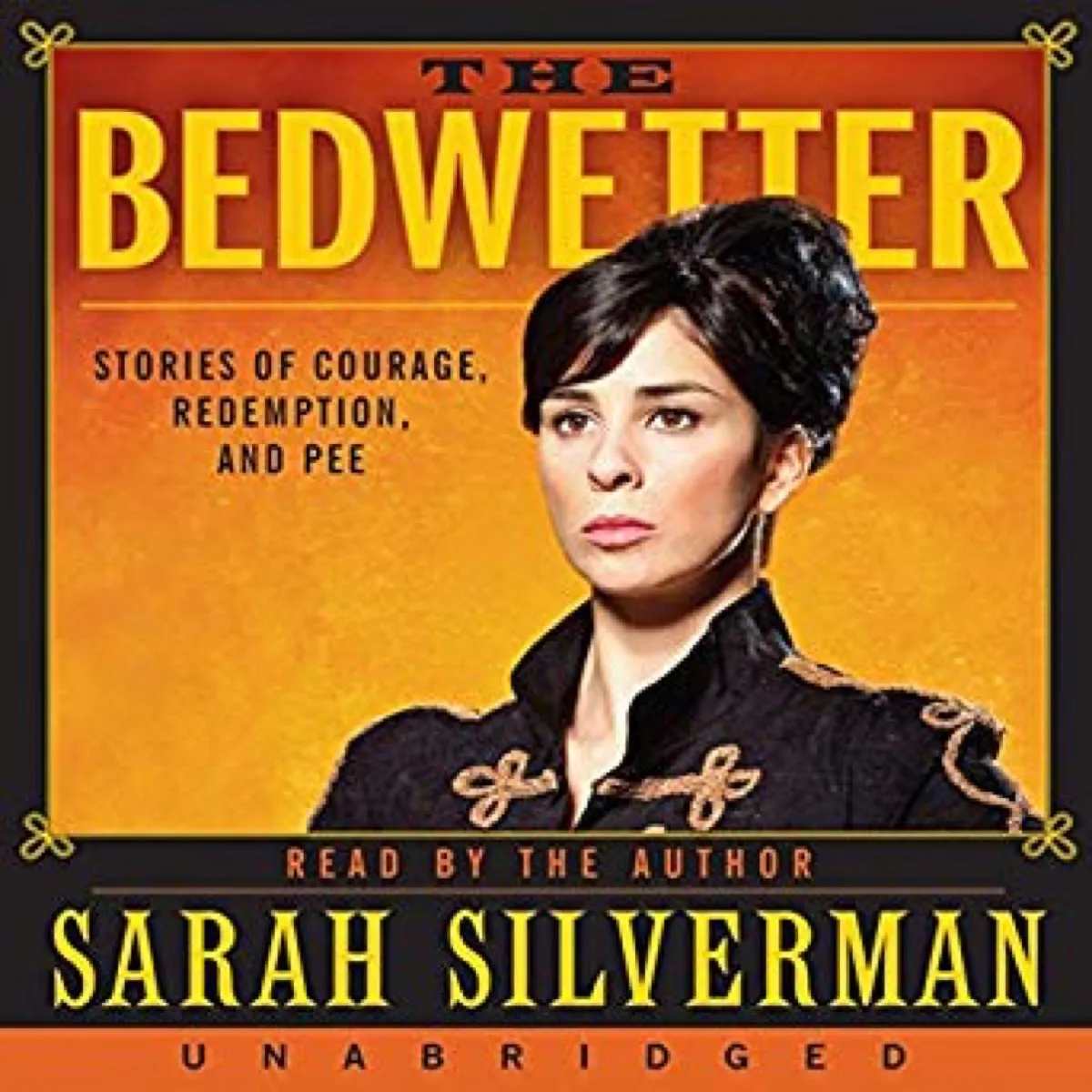
If anyone's going to successfully make a memoir about bedwetting funny and heartfelt, it's Sarah Silverman. Her childhood was anything but easy, with struggles to overcome depression, a Xanax habit that started when she was 13, and her therapist committing suicide. But most daunting was her bedwetting, which continued well into her high school years. She explains how it pushed her deeper into depression, and eventually fueled her comedy ambitions. As she writes, "My early trauma was a gift, it turned out, in a vocation where your best headspace is feeling that you have nothing to lose."
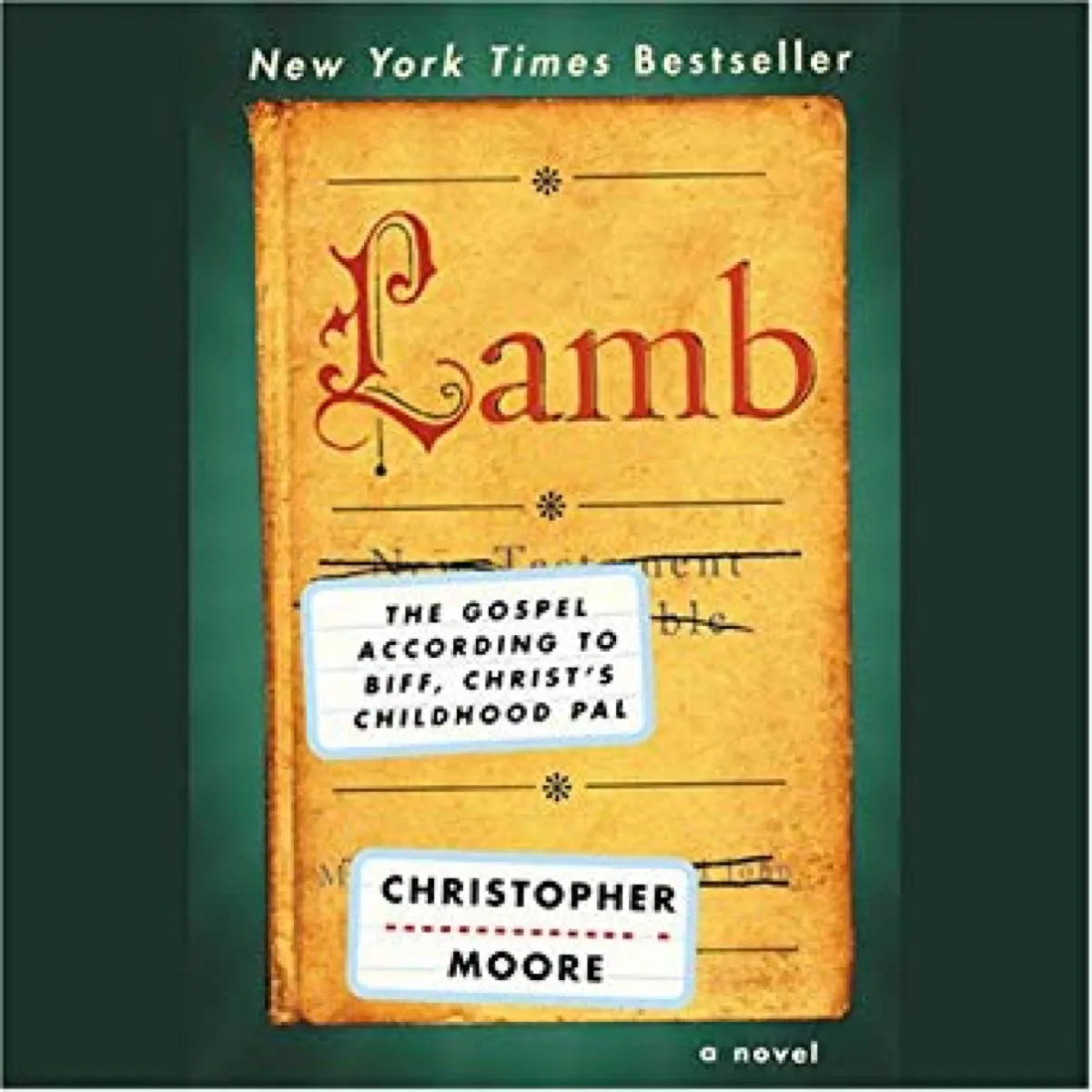
A novel that imagines the untold story of a young Jesus—the "lost gospel" of the Bible, if you will—should be outrageous and scandalous. But instead, Moore managed to write a sweet and weirdly touching portrait of a young man who's just discovering his powers and responsibilities. There's one scene where a six-year-old Jesus brings the same lizard back to life repeatedly, after his little brother "smote it mightily" with a rock. He finds so much joy in making people's lives better that he runs through a crowd, randomly healing people, muttering, "Healed that guy. Healed her. Stopped her suffering. Healed him. Comforted him. Ooo, that guy was just stinky. Healed her. Whoops, missed. Healed. Healed. Comforted. Calmed."
To discover more amazing secrets about living your best life, click here to follow us on Instagram!
Source: https://bestlifeonline.com/funniest-books/